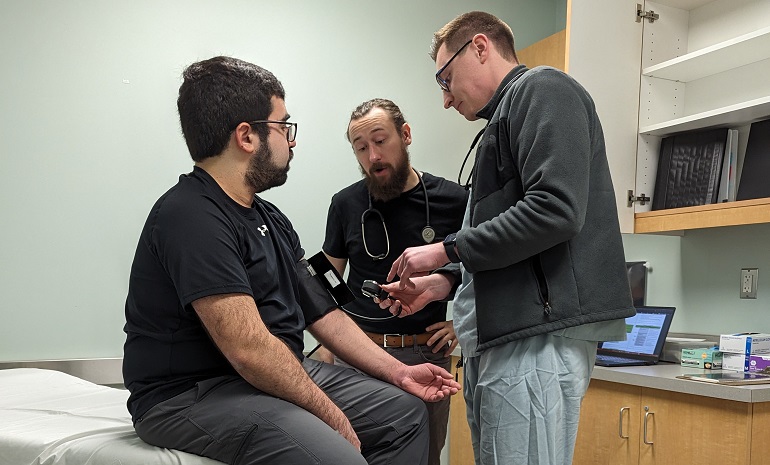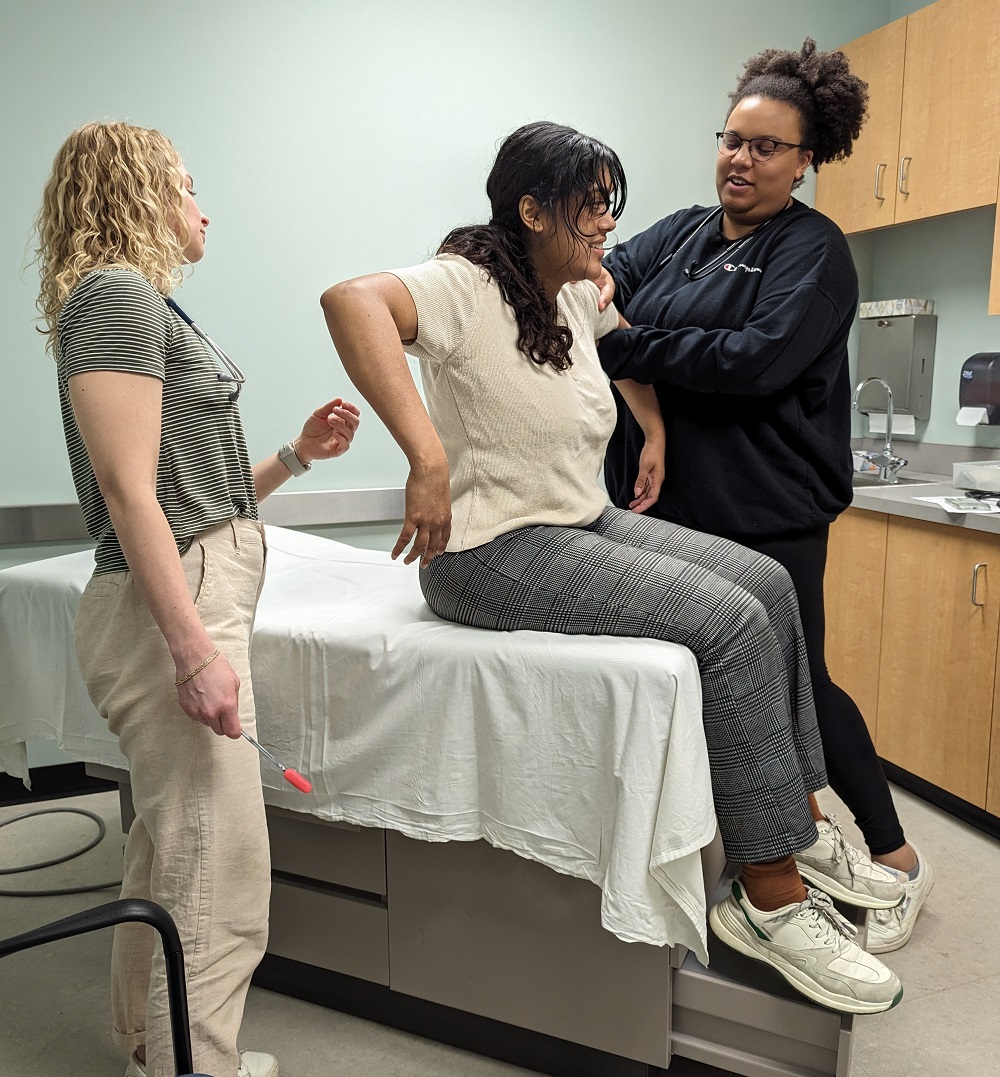
A trio of students enrolled in the Wayne State University School of Medicine’s M.D./Ph.D. program have successfully led the reinstatement of a clinical skills boot camp for students who are in the scientific years of the dual-degree program.
The M.D./Ph.D. program at the School of Medicine combines scientific training with clinical medicine to train individuals as physician-scientists, who will go on to excel in careers in research and education.
Students train as medical students for the first two years of the program, then complete their doctoral studies over an up to five-year period, before returning to the final two clinical-based years of medical school.

The two-day event, held March 11-12 at the Kado Clinical Skills Center at the School of Medicine, was initiated by M.D./Ph.D. students Jenna Carter and Ashley Kramer in 2018 to refine the clinical competencies of WSU School of Medicine M.D./Ph.D. students during their doctoral training. The event, last held in 2019, is designed to bolster confidence in essential skills such as clinical interviewing, differential diagnosis and physical examination skills.
This year’s camp was led by student leaders Rafael Ramos, a third-year Biomedical Engineering doctoral student; Grant LeVasseur, a fourth-year Translational Neuroscience doctoral student; and Amanda Paskavitz, a first-year Molecular Medicine and Genetics graduate student.
The process of earning a doctorate may take up to five years, and past students have noted their desire to have more structured clinical experiences during this time away from their medical training.
With a focus on reviewing and integrating the clinical skills acquired during the first two years of medical school, participants delved into practical sessions led by eight fourth-year medical students and M.D./Ph.D. program student leaders. First- and second-year medical students practice simulated patient encounters as student doctors.
Through interactive case work diagnosing common patient symptoms and hands-on practice of some of the essential physical exam maneuvers, attendees had the opportunity to refine their diagnostic acumen and patient interaction skills, preparing them for their last two years of medical school and laying a solid foundation for their future roles as physician-scientists.
The event reinforces WSU’s Prosperity Agenda by accelerating mobility for students through “learning-by-doing” experiences that cultivate the competencies that prepare graduates for successful careers. M.D./Ph.D. graduates will play a vital role in the health of Detroiters, serving in all major Detroit health systems during the clinical years of their medical education, expanding cutting-edge care and addressing health disparities to build healthier, more resilient neighborhoods in Detroit and beyond.
The boot camp also provided a dynamic platform for students to collaborate, share insights and learn from one another’s experiences, fostering a vibrant community of learning and growth within the M.D./Ph.D. program. These program-wide events are important given the widely different areas of scientific study, the organizers said.
“This bootcamp is just one way that our M.D./Ph.D. students can maintain their clinical skills. Students in their Ph.D. years are also encouraged to engage with patients frequently throughout the year under the guidance of their chosen physician mentor. And some students may also engage in research that is more focused on patient interaction directly,” LeVasseur said.
The center is run by Assistant Professor of Pediatrics and Segment One Clinical Skills Course Director Erin Miller, M.D., Director of Operations Conrad Hunt and Associate Director of Education Simone Brennan, Ph.D., and other members of the medical education team. The team provided feedback on the implemented curriculum for the bootcamp, recruited fourth-year student volunteers to help lead the sessions, and set aside space and time in the center.
“The M4s were fantastic. I learned some helpful tips for physical exams. It was also great to spend time practicing skills in a casual environment where we were just refreshing our knowledge and not being evaluated,” Paskavitz said.
Ramos and LeVasseur hope to grow the boot camp, and potentially offer it to any medical students that may be on a leave of absence and planning their return to medical school.